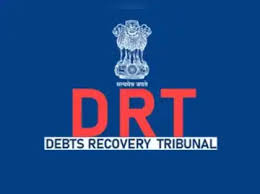Debt Recovery Tribunals:

The Department of Financial Services (DFS) under the Ministry of Finance organised a colloquium recently at New Delhi, bringing together Chairpersons of Debt Recovery Appellate Tribunals (DRATs) and Presiding Officers of Debt Recovery Tribunals (DRTs).
- Debt Recovery Tribunals (DRTs) are quasi-judicial bodies established under the Recovery of Debts Due to Banks and Financial Institutions Act, 1993.
- Their primary role is adjudicating debt recovery disputes related to banks and financial institutions.
- DRTs handle loan default cases above ₹20 lakh, focusing on secured debts.
- DRTs also hear Securitisation Applications (SAs) filed under the SARFAESI Act, 2002 by borrowers or aggrieved parties.
- There are currently 39 DRTs functioning across India, each headed by a Presiding Officer.
- A DRT is presided over by a judicial officer qualified to be a District Judge.
- It can also have administrative and technical members appointed by the Central Government.
- Under Section 22(2) of the Recovery of Debts Act, DRTs have powers to:
- Summon and examine witnesses,
- Compel the production of documents,
- Receive evidence on affidavits,
- Review or dismiss applications,
- Conduct ex parte proceedings,
- Issue commissions for document and witness examination.
- Each DRT has a territorial jurisdiction defined by the Central Government.
- Jurisdiction is limited to cases involving debt recovery by banks and financial institutions.
- Debt Recovery Appellate Tribunals (DRATs) are the appellate authorities for decisions made by DRTs.
- Appeals can be filed by aggrieved parties seeking review of DRT rulings.
- Currently, 5 DRATs are functioning in India, each headed by a Chairperson.
- DRATs ensure judicial oversight and uniformity in debt recovery matters and promote legal clarity on complex recovery disputes.




